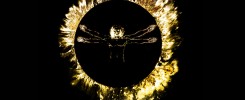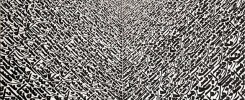The Islamic Shahada (testimony of faith) begins with the negation: la ilaha – “there is no godˮ, and continues with the statement: illa llah – “but Allah.ˮ
What exactly does this phrase mean: “but Allahˮ? How is “Allahˮ understood in this formula, and how should He be understood? “And none is comparable to Him,” says Surah “Tawhid”. There is nothing like the Creator, there is nothing equal to the Creator. His essence is absolutely incomprehensible, closed from minds and thoughts forever and ever, not available to any of the creatures. If it was available or imaginable for them, then they would be able to embrace Him, and whoever embraced – became equal, and who became equal – he himself turned into God. But “there is no god but Allahˮ …
Where have we come to? Didn’t we find ourselves thrown back to the first part of the Shahada along with this statement about the absolute incomprehensibility of the Creator? “There is no god …ˮ Everything that you saw, understood, imagined, is not God. “There is no god …ˮ
What then does this statement “but Allah” mean? What comprehension, what experience allows us to build a bridge from the first part of the Shahadah to the second? What allows us to say: “There is no god – but there is Godˮ?
When the Creator created the creatures, He knew that they would not be able to comprehend Him by His essence. Therefore, He created for them a description of Himself, that is, such a creation by which they will cognize Him and which is an indication of Him, just as a lighthouse is an indication of dry land. And this creation is Muhammad and the Family of Muhammad – Ahl ul-Beit, People of the House, the Fourteen Infallibles, who are the Light one from another. “We will show them Our signs in the universe and in themselves until it is evident to them that it is the Truth” (41: 53).
In other words: the Creator manifested Himself for the creations not by His essence, but through these creations themselves. Therefore, there is nothing more obvious for creatures than He. As Imam Ali (A) said: “Thoughts do not comprehend Him, but He is manifested for them through them.ˮ The entire universe is nothing more than a manifestation of the Creator’s action which means that the qualities of His action are reflected in all things. This is similar to how we know fire by its effects. Suppose we do not know the essence of fire and assume that this essence is completely inaccessible to our knowledge and is absolutely different from everything that we know and can know. But nevertheless, the actions of fire are available to us: we know that it burns, and therefore we call it “burningˮ; we know that he warms, and therefore we call it “warming.ˮ In the same way, by the actions of the Creator, we know that He is Beautiful, Merciful, Knowing, Wise, for someone who is not knowing could not create knowledge, someone who is ugly could not create beauty…
But how do we know that fire is “burning”, “warming”, “luminous” if we assume that we do not see the fire itself? We know this from the object that is put in it and is red-hot in it. A piece of iron in fire acquires all the qualities of fire: it burns, heats, shines… So are the Fourteen Infallibles – Muhammad, Fatima and twelve Imams (peace be upon them!). They embody all the qualities of the Lord’s action, by which the Lord Himself is known.
Here is the secret of the second part of the Shahada: only after knowing the highest sign of God, we can say: “There is a God!ˮ This is the “pointing finger” from the first part of the Shahada to the second; this is the bridge, the “straight path” and the Sirat, along which all creations go to the Creator in the lower world and in the hereafter. “There is Allah’s wilaya – the truth. He is best in reward and best in outcome”(18:44).
So, Allah is known only by His highest creation and the greatest sign: “And for Allah is the highest exampleˮ (16: 60). Therefore, the one who comprehended this sign and follows its Path professes the second part of the Shahada. The one who rejected it, locked himself in the framework of only the first part: la ilaha, “there is no god.ˮ Without the knowledge of the Creator through His highest sign, the second part of the Shahada turns into an empty verbal formula without semantic content, and the scales wholly lean towards “la” as a black vector of total negation and destruction. And here, at this point, “Islamˮ and Western nihilism merge with each other.
The destruction of man and the total attack of nihilism in the technical civilization of the modern West comes into resonance with the first part of the Shahada, which is devoid of connection with its second part. Total “noˮ without a subsequent “yesˮ; “There is no God” without “there is God” (“there is” through His highest sign among creations, without which there is only His “no”) – on the practical plane of the lower world, all this turns into severed heads on the asphalt and similar terrible things, which there seems to be no logical explanation.
The more a person plunges into the first part of the Shahada without the second one, the more dangerous and destructive he becomes. This is best shown by an example of Wahhabism – a movement that to the greatest extent has broken the connection with the highest sign of the Creator, and therefore with the Creator Himself. According to the Wahhabi doctrine, any knowledge and veneration of any of God’s creations is nothing but shirk, that is, the worst of sins. Here, the truth of Islam is literally turned inside out. In fact, cognition of God and adherence to God is impossible in any other way, except through the creation of God: that which in the optics of Wahhabism is declared to be exactly “shirkˮ. On the other hand, the abstract God of the Wahhabism turns into the same Wahhabi, only of large sizes: He has eyes, arms, legs, running and even a scent is inherent in Him. But the main thing is that He longs for blood and murder of “infidels” (and anyone can become “infidel”, including “wrong” Muslims and even other Wahhabis). So, Tawhid is here declared shirk, shirk declared Tawhid. The typical Wahhabi, led by the first part of the Shahadah without the second part, is obsessed with the “noˮ formula: he is constantly looking for what is “not Godˮ in order to destroy it. Precisely because the Wahhabi does not know God, he is possessed by “not God” (la ilaha), loving and hating it in an act of sinister voluptuousness.
And here we get the so-called “pure monotheismˮ, about which the Wahhabis talk so much, that is, the same monotheism of the first part of the Shahada without its second part. No doubt this “pure monotheismˮ is really nothing more than pure Satanism. Iblis in the Quran is cursed precisely for refusing to honor Adam, that is, the viceroy and khalif of the Creator. Satan never rose up against the Lord Himself. In the Quran, he refers to Him as “my Lord.ˮ And in the history of Islam there were figures who seriously glorified Iblis as a “pure monotheistˮ who “refused to honor anyone other than the Creator.ˮ
In this regard, Macron or the forces behind Macron are on the internal plane exactly the same forces that drive the confessors of the first part of the Shahada without its second part – or, in other words, Islam without Ahl ul-Beit. Looking in each other’s mirror, they see the same grin of the total Nothingness.
1,366 total views


